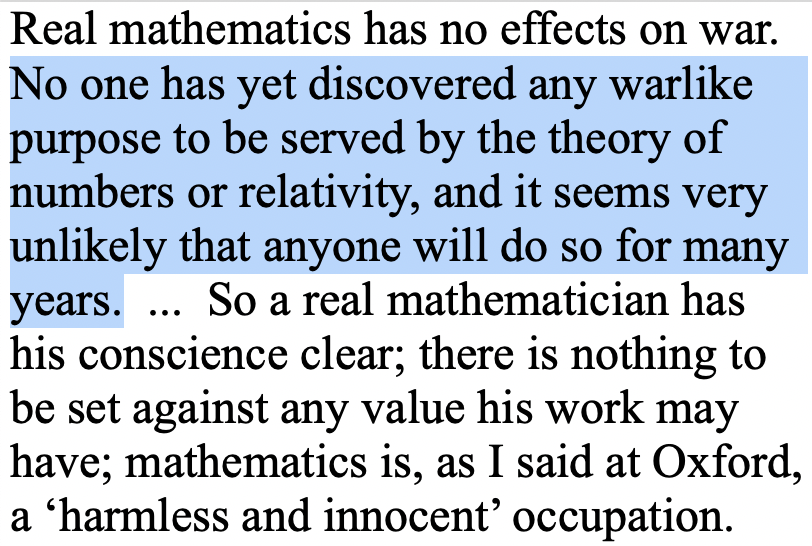
One of the most ironic predictions made about research is from mathematician G.H. Hardy’s famous "Apology", written in 1940. He defends pure mathematics (which he called real mathematics) on the grounds that even if it can't be used for good, at least it can't be used for harm. 

Number theory later turned out to be a key ingredient of modern cryptography, and relativity is necessary for GPS to work properly. Cryptography and GPS both have commercial applications and not just military ones, which I suspect Hardy would have found even more detestable.
Hardy’s examples weren’t merely unfortunate in retrospect. I think they undercut the core of his argument, which is a call to retreat to the realm of the mind, concerned only with the beauty of knowledge, freed from having to think about the real-world implications of one’s work.
I don’t think Hardy’s value-free realm exists. Of course, he couldn’t have anticipated the specific applications of number theory that would later be discovered, but the comfort he took in the assumption that any such development was unlikely was a false one.
I often see techies drawn to tinkering and creating new technology, seeing it as a comfortable, value-neutral intellectual activity just because the applications aren’t immediately obvious. Again, this is false comfort. If pure mathematicians don’t have this luxury, no one does.
It’s easy to reject Hardy’s extreme as well as its opposite (that we should stop basic research because of the potential for harm). But what is the middle ground? What are the ethical responsibilities of people doing basic research (whether in math or any other field)?
I personally work on applied research, for which ethical guidelines tend to be relatively well established. But I know many researchers working on pure/basic/fundamental questions who are deeply struggling with these questions. Any pointers and recommendations are welcome.
• • •
Missing some Tweet in this thread? You can try to
force a refresh





